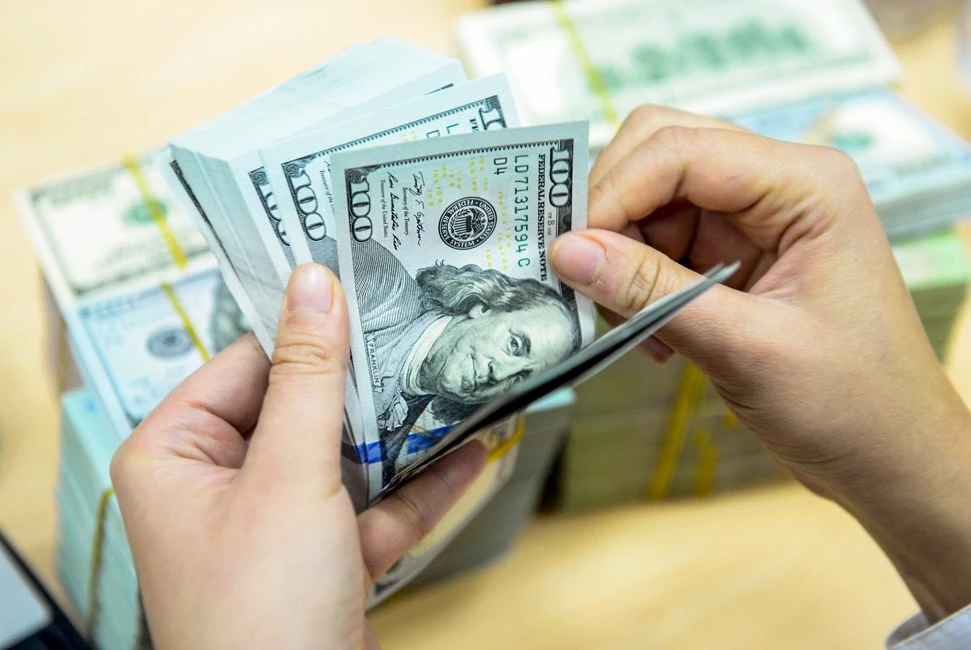
In a discussion with Sai Gon Investment, Nguyen Duc Hung Linh (photo), Director of Retail Research and Investment Consulting, SSI, said “amidst the slowdown of the global economy, many central banks like central banks of Australia, India, Russia, Chile have cut their interest rate to support the growth. The big central banks such as BOJ (Japan), BOE (England) and ECB (EU) are also expected to continue easing their monetary policies. In the tough trade war with China, although the odds favor the US, the US economy has also been impacted negatively. The PMI-Purchasing Managers Index and GDP growth have dropped continuously, while the inflation has been far below its target of 2%. Hence, it is easy to understand why FED has cut its interest rate. I think the rate cut is suitable with current conditions where the US economy is also being affected by both positive and negative indicators.”
JOURNALIST: - Many experts think that the US-China trade war has stepped into a new and more serious phase. What do you think about this?
NGUYEN DUC HUNG LINH: - President Trump seems to be moving towards tougher policies after China missed meeting the commitments of many negotiations at the last minute. President Trump is preparing for his next re-election, and tougher policies with China may help him get more votes from people who support his slogan call, “make America great again”.
On the other hand, China is stalling for time and hopes that the next election result will change the situation in its favor. While the policies of China to depreciate CNY and stop purchasing of agricultural products from US has immediately impacted the US, the policy to increase tariff will be effective by September.
The trade war between the US and China is in line with expectations as US wants to scale down the rise of China. However, the fast speed of the trade war was unexpected. Just in some days, it has scaled up to a serious level and cannot be reversed.
China’s economy will surely be impacted by the trade war. However, China has many tools, such as monetary policy, and fiscal policy to support growth. US economy is also impacted and has many tools to respond like interest rate cut or US exports. These two factors help offset the negative impacts of the trade war.
The question is how the escalating trade war will impact the global economy. Besides US and China, other countries like Europe, Middle East, Japan and Korea will also be impacted. However, it will be over pessimistic to say we can expect a recession. The growth will be decelerated, but it is hard to fall into a recession, given the support of growth policies of many countries.
- Will the trade war turn into a currency war?
- The break above 7 of USD/CNY exchange rate was just an immediate response of the market or it may be the subjective policy of China’s central bank. However, in my opinion, it is more impacted by the market.
It is unclear to expect a currency war although US has listed China as a currency manipulation country. I think China does not want CNY to be depreciated strongly as this will impact the stability of China’s economy significantly. This is a weakness of China as compared to the US.
China has a huge trade surplus and foreign reserves. It also has a controlled banking system. These factors give China tools to stabilize the exchange rate. In the international market, China always tries to show its interest to improve the image of CNY. China wants to internationalize its currency, hence, it will have to control the fluctuation of the CNY.
- What is the message from the increase of gold price since May 2013?
- Gold is considered a safety haven of investors. The surge in gold price reflects the unstable sentiment and the increase of risk. It also reflects the expectation that the central banks will ease their monetary policies, and cut the interest rates. These factors in turn help reduce the cost of holding gold and making gold a more attractive investment.
- Based on the movement of the USD/CNY and the interest rate cut of FED, what do you think about the monetary policy and exchange rate of Vietnam in coming times?
- I think the 7 level of USD/CND is just a sentiment level. CNY has depreciated about 2.4% over the last few days. Practically speaking, CNY has depreciated the same amount when US imposed 25% tax rate on USD 200bn worth of Chinese products in May. However, this depreciation is far below the 7% depreciation of CNY at the beginning of the trade war.
When CNY depreciated 7%, VND depreciated 2.1%. Vietnam’s foreign reserves are now much stronger. The foreign investment flow has still been positive. Hence, the USD/VND rate has been stable over the last few days. It only increased 0.22% in the first week of August.
However, in my opinion, under many complicated pressures, the monetary policy of Vietnam should be more flexible to avoid shock and to be able to stabilize the macro economy. Beside the monetary tools, government should use other tools like commerce encouragement or investment motivation. The stability of the exchange rate is only sustainable when we use our bundle of tools systematically and effectively.
- Thank you very much.




















